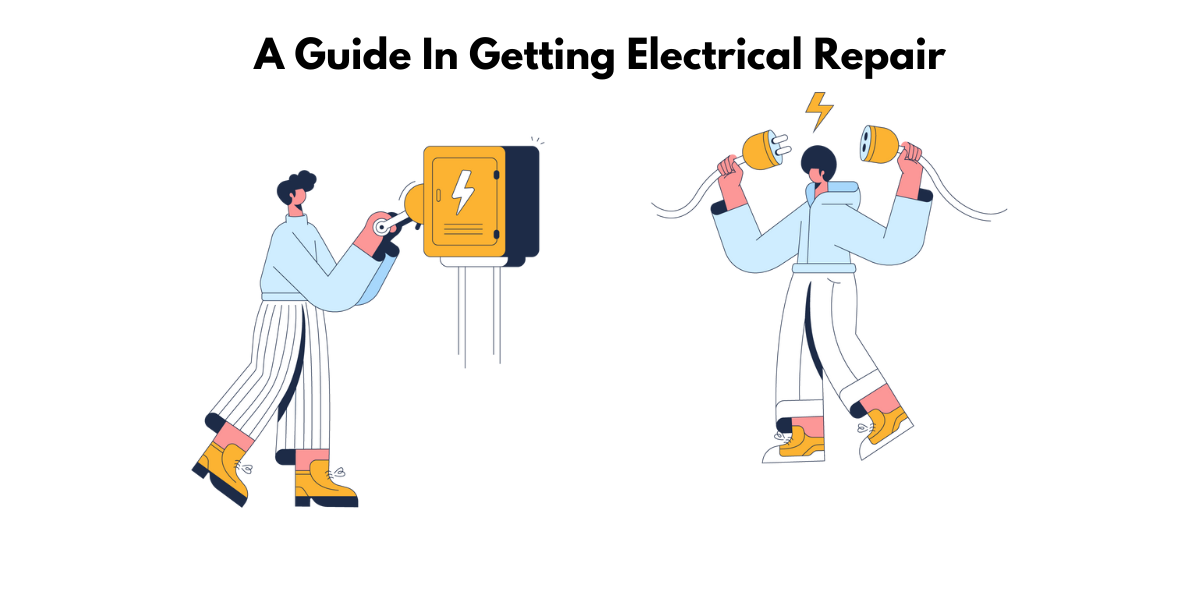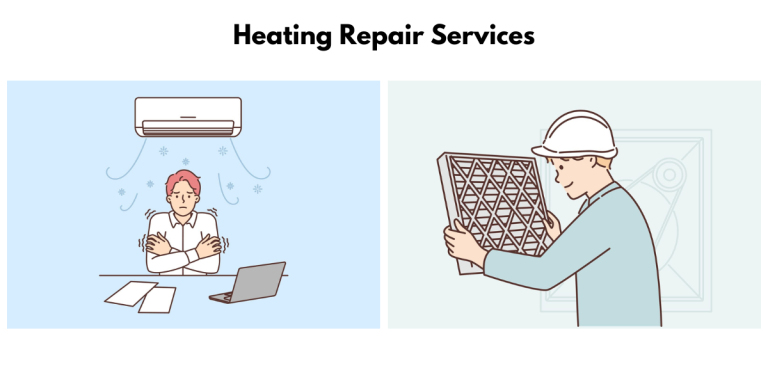Electrical Repair: How to Fix a Broken Electrical Service or Appliance
Understanding Electrical Repair
1. What Is an Electrical Repair?
An electrical repair is when skilled electricians mend any issues with your home or business’s electrical systems. These pros do things like fix faulty wiring, replace outlets, switches, or even upgrade your system to handle more gadgets. For instance, if your home office keeps tripping the circuit breaker, you’d call in an electrical repair contractor to troubleshoot and fix the issue.
These tasks involve:
- Spotting the problem source
- Giving you an estimate for the repair
- Tackling the repair after your approval
2. Why Is an Electrical Repair Necessary?
Electrical repair is a lot more than just swapping out light bulbs and flicking tripped breakers. It delves into the realm of hazardous tasks, best left to the hands of certified pros. You wouldn’t let your neighbor perform surgery on you just because he once watched a medical TV show, right? The same goes for electrical work.
Now, why is it essential, you ask? Well, check out these reasons:
- Safety: This is the single most important reason. Messing around with electricity, you could end up causing a fire or even worse, get electrocuted. A certified professional has the training to eliminate these risks.
- Experience: These guys have years of experience under their belt. They can juggle any kind of electrical issue like a pro while ensuring you will be more than satisfied with their work.
- Licensed: Hiring a licensed electrician ensures everything they do follows strict standards and codes. Without this license, the electrical work could be termed illegal and you, my friend, can run into some serious complications.
- Quality Work: You wouldn’t want a faulty DIY job leading to more havoc, would you? The professional guarantee comes with high-quality, check-and-balanced work. Should something not meet your expectations, they’re committed to setting things right, free of charge.
- Timeliness: You need not wait for good and affordable electrical repairs. These wizards are available day or night, ready to turn up promptly and honestly when needed.
- Communication: A pro will always keep you in the loop and discuss any changes in strategy (if there are any). You stay informed throughout the entire process.
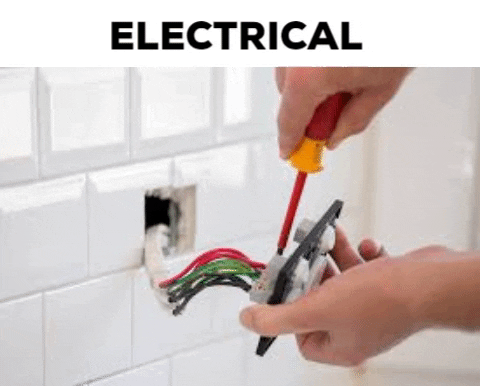
3. Types of Electrical Repairs
Electrical systems might be a bit high-maintenance at times, but they’re nothing to be taken lightly. Safety comes first and trust us, you don’t want any untrained hands touching that wire. So, let’s peek into the realm of electrical repair services. Here are some of the common types you may encounter:
- Faulty Wiring Repair: If you suspect something’s off with your wiring, this is where electrical repair contractors step in.
- Replacing Electrical Outlets and Switches: Yes, even your everyday switches and outlets aren’t invulnerable to damage.
- Installation of New Lighting Fixtures: Think pendants, sconces, chandeliers – all beautiful, all needing professional hands to set up, swap, or repair.
- Electrical System Upgrade: Electricians can optimize your electrical system to safely handle more devices – picture an added dishwasher or a new HVAC system.
- Industrial Electrical System Repairs: Electrical repair services can handle large industrial electrical systems and transformers, or something as basic as a panel upgrade.
- Installation of New Electrical Equipment: Electricians can safely install new equipment, aligning it perfectly with your existing electrical system.
4. Costs of Electrical Repairs
We get it, one of the first things many homeowners like you wonder about is how much electrical repairs can cost. Frankly, it’s a tricky question as it heavily depends on the type of services required and the parts needed. Still, we’re here to provide you with some ballpark figures and tips to help you out.
- Fixing Faulty Wiring: Faulty wiring can be dangerous and it usually requires the help of an expert to identify the issue and fix it. The cost can vary depending on the complexity of the problem but you might have to set aside anywhere from $150 to $3,000.
- Replacing Electrical Outlets and Switches: These are some of the more common issues and are fairly simple tasks for a professional electrician which could cost between $100 to $200 per switch or outlet.
- Installing New Lighting Fixtures: Depending on the fixture, this could cost you from $150 to $700. The price can vary with the design complexity, installation time, and whether or not existing wiring can be used.
- Upgrading the Electrical System: If you’re planning to add more appliances or devices to your home, an upgrade may be needed. This might cost you a pretty penny though, as it can range from $1,300 to upwards of $3,000.
- Whole House Rewiring: This is the most extensive (and expensive) repair job, and it can vary widely based on the size of your home and the complexity of the wiring. According to Thumbtack, you can expect this to cost anywhere between $1,500 and $10,000.

Common Electrical Services and Appliances
1. Home Electrical Service Panel: This is the main electrical board of a house, and it distributes power to all electrical circuits and fixtures in the house.
Your electrical service panel plays a pivotal role, serving as the main junction box for electricity in your house. It’s like the command center where the game plan is set and executed. Whether you turn on your laptop for a day of telecommuting, binge-watch your favorite series, or run your laundry, the service panel ensures that power is properly and safely routed to all these activities.
2. Electrical Wiring: This refers to the wiring that connects electrical circuits and fixtures in a house.
Think of electrical wiring in your home as the veins and arteries of the house, pumping much-needed electricity to every corner of your dwelling. These little miracle workers connect everything – from the cozy lamp in your reading nook to your supercharged gaming rig – to the life-giving energy flowing in from your friendly neighborhood power station.
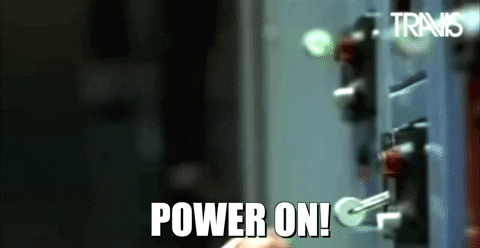
3. Electrical Circuit Breakers and Fuses: These devices protect homes from electrical overloads.
Electrical circuit breakers and fuses are like the good guys in a superhero movie. They’re all about protecting your house from the dangers of electrical overload. They work by interrupting the flow of power whenever it gets too high, stopping it right in its tracks before it can do any damage. For example, on a perfect morning, you might be making some toast and brewing a cup of joe when suddenly, boom! The circuit breaker trips, and everything powers down. It’s annoying, yeah, but that little switch just saved your electrical wires from overheating and prevented a potential fire. Time for some high-fives!
4. Electrical Switches and Outlets: These allow you to control and distribute power in your home.
Let’s talk about electrical switches and outlets, the unsung heroes of your home. It’s a bit hard to imagine life without them, isn’t it? These unassuming little boxes camouflaged on your walls are your path to modern living. They power up your house and let you enjoy the perks of electronic gadgets. Lively light fixtures light up your place; your coffee maker serves you hot cups every morning, and your laptop keeps you connected to the world outside. It’s all thanks to these trusty teammates, switches, and outlets. But, like any other ‘heroes’, they’ve got their strengths and weaknesses.
5. Home Appliances: Examples include heating and cooling systems, ovens, and refrigerators.
Ever wondered why your once-pristine oven now refuses to heat up, or why your fridge seems to enjoy thawing and refreezing your frozen peas? Hey, you’re certainly not alone! As fellow homeowners and appliance users, we have all been trapped in a mid-cooking crisis or left to scour through drippy ice cream at some point. Now, wouldn’t you agree that those trusty home appliances, be it those cozy heating and cooling systems, the indispensable oven, or the daily life-saver – the refrigerator, are no less than superheroes in the modern household? But like every real-life superhero, they also need a little tune-up every now and then.
6. Lighting: This includes all the bulbs and fixtures in your house.
“Lighting” in the context of electrical services often refers to both indoor and outdoor fixtures such as chandeliers, pendant lights, recessed lights, flush mounts, or landscape lanterns designed to illuminate your space. This also applies to other types of lights like holiday lights, path lights, or security lights.
When it comes to lighting repair, the process might involve replacing bulbs, troubleshooting power issues, or even fixing a light string that has conked out from last Christmas, a typical household might call upon electrical repair services.
7. Smoke Detectors and Carbon Monoxide Detectors: These devices alert you to danger and help keep your home safe.
Smoke detectors and carbon monoxide detectors are life-saving gadgets that alert you and your family in case of a fire or the presence of colorless, odorless carbon monoxide. These devices are your first line of defense against unseen hazards, making their presence crucial in every home.
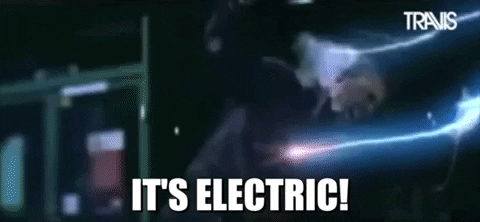
Electrical Repair: DIY vs. Hiring a Professional
DIY electrical repair might seem appealing as it gives a sense of accomplishment and perhaps could save some pennies. However, it has a bunch of cons that we can’t ignore. On the flip side, hiring a professional sounds like an excellent idea given their expertise and safety assurance, but it might not always be the budget-friendly option.
When contemplating getting your hands dirty with wires and circuit breakers, here are some top considerations for DIY electrical repair:
- Your comfort level with electrical work
- The complexity of the repair
- Availability of the required tools
- The risk of personal injury
- Legal implications if you’re unlicensed
Now, let’s weigh the pros and cons of a DIY project:
*Pros of DIY:*
- Cost-saving: You avoid professional service fees.
- Convenience: You can fix the issue at your preferred time.
- Learning opportunity: Gain some hands-on experience and understanding of your home’s electrical system.
- Self-fulfilling: Completing a task by yourself can bring a sense of achievement.
- No waiting: You don’t have to wait for a repairman to fix urgent issues.
*Cons of DIY:*
- Safety risks: Untrained individuals risk electrocution or triggering a fire.
- Legal problems: Performing electrical work without a license can result in fines or other legal issues.
- Costly mistakes: Faulty work increases the likelihood of more expensive repairs down the road.
- Time-consuming: Without expertise, figuring out the issue and fixing it takes time.
- Limited access to professional tools or materials: Some issues could require tools or materials only accessible to professionals.
Opting to have a professional repair your electrical issues also requires some thought. Here are a few things to consider:
- The complexity of your electrical issue
- The cost of professional services
- The contractor’s expertise and credibility
- The element of safety
- Legal implications
Moving on, let’s scan the pros and cons of hiring a professional:
*Pros of a Pro:*
- Expertise: Professionals have the necessary training and experience.
- Safety: Incorrect repairs can pose serious hazards like fires, while professionals ensure safety.
- Quality: Professionals uphold high standards.
- Insured Work: They’re insured against damage that might occur during the work .
- Legal implications: Professionals follow strict regulations and standards, ensuring all work is lawful.
*Cons of a Pro:*
- Cost: Hiring a professional can be more expensive than a DIY project.
- Availability: You might need to wait before getting the repair done, especially during peak times.
- Potential for scammers: There’s a risk of falling victim to a fraudulent or unqualified contractor.
- Communication challenges: Not all professionals may be forthcoming or clear in explaining the issue and their process.
- Loss of learning opportunity: Handing it over to a professional might rob you of the chance to learn and comprehend your home’s electrical system better.
So, as you can see, both DIY and professional electrical repair have their set of unique upsides and downsides. Your choice ultimately depends on your unique situation, comfort level with electrical work, and the gravity of the issue at hand.

Electrical Repair Safety Tips
1. Ground all electrical systems
2. Ensure safety receptacles
3. Check for electrical shorts
4. Do not touch electrical wires when wet
5. Know the electrical system of your home
6. Have a qualified electrician repair electrical problems
7. Follow safety precautions when working with electrical systems
8. Always use a circuit tester when wiring
9. Make sure there is power to the circuit before attempting repair
10. Use proper wiring when repairing electrical systems
When to Call a Professional
1. When the Repair Involves Complex Wiring or Electrical Systems
- If you constantly experience circuit breakers tripping or fuses blowing.
- You notice some discolored outlets or switches, perhaps with a burnt smell.
- Whenever you hear buzzing or sizzling sounds from your electrical outlets or switches.
- Experiencing shocks on touching an appliance. Much as sub-gothic horror movie thrill is appealing, being shocked isn’t fun.
- If your electrical system is decades old, a thorough check by a pro is essential. Remember, new tech doesn’t gel well with old wiring.
- When you’re dealing with two-prong outlets – these are relics of the past and they can’t handle today’s appliances.
- If your lights flicker – no, it’s not the romantic candle-light dinner ambiance – it’s an electrical issue. Plus, it can be super annoying.
- Planning on installing new appliances? Large ones like air conditioners and refrigerators might need their own dedicated circuits.
- If you’re considering a home expansion or remodel, this definitely calls for a professional electrician, it’s not your average makeover.
- And lastly, if you spot any exposed wires or cables, that’s an emergency.
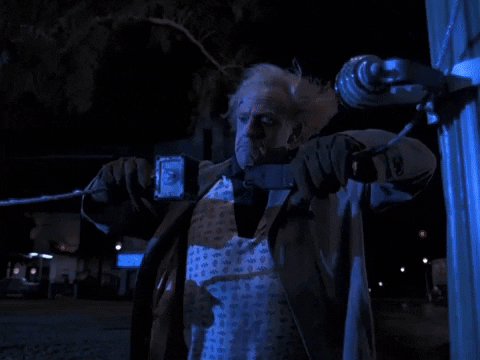
2. If the Repair Involves Safety Concerns, such as Electrical Shock or Carbon Monoxide Exposure
If you’re facing issues with your electrical system at home, it’s always safe to call in a professional electrician. Not sure when you should place that call? Here’s an easy-to-follow list of loud and clear signs which shout, “You need an electrician, pronto!”
- Buzzing Noises: The unsettling hum could indicate a loose connection, making the wires vibrate. Rather than taking matters into your own hands, switch off the power supply to the suspicious outlet and dial us up immediately.
- Aluminum Wiring: Does your house trace its roots back to the nostalgic ’60s or ’70s? Then there’s a chance it might have aluminum wiring, known to trigger fires as it ages. Though your vintage abode might be full of charm, it could hide potential electrical hazards best left for a professional electrician to tackle.
- Carbon Monoxide Detection: Can’t smell it, can’t see it – carbon monoxide might be sneaking around your home as you read this. It’s vital that your carbon monoxide detector is in perfect condition to guard against these unseeable threats. If not, allow our trained professionals to fix it for you. After all, nothing trumps the safety of your loved ones.
- Dimming or Flickering Lights: Struggling with lights that dim or flicker on their own? Our professional electricians would be more than happy to help you out.
3. If the Repair Involves High-Value or Long-Life Electrical Systems
High-value or long-life electrical systems are those that either cost a large amount to replace or are designed to serve for an extended period. These might include large industrial electrical systems, transformers, electrical service panels, and various electrical equipment. The complex automation and control systems used in manufacturing or transportation also fall under this category.

